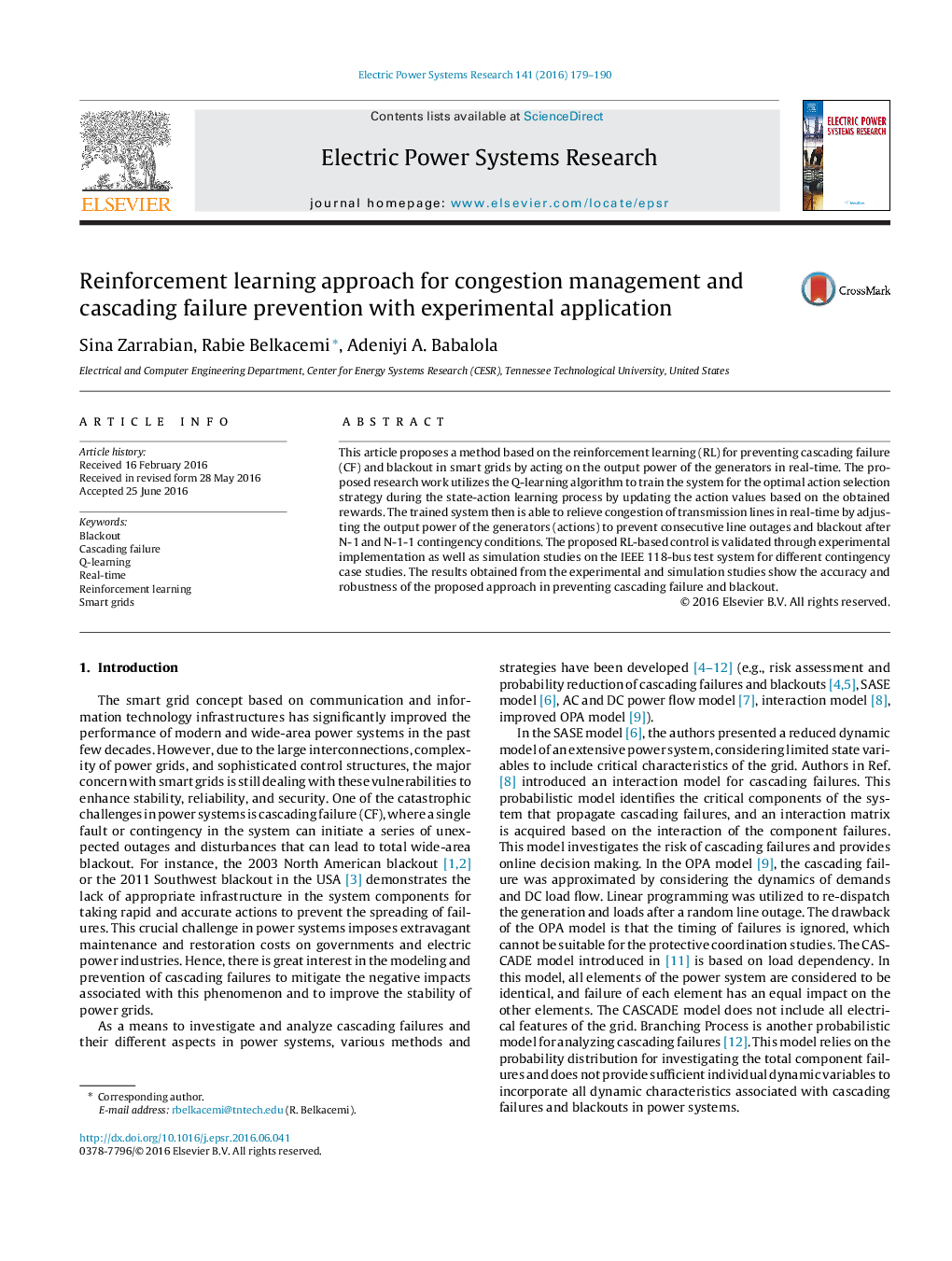| Article ID | Journal | Published Year | Pages | File Type |
|---|---|---|---|---|
| 704688 | Electric Power Systems Research | 2016 | 12 Pages |
•Q-learning (QL) approach is proposed to prevent cascading failure and blackout.•QL is implemented on an experimental power setup for multiple contingencies.•The proposed QL algorithm is compared with the load shedding method.•QL approach is verified through computer simulation on the IEEE 118-bus system.•The results show that the QL algorithm is highly effective and robust method.
This article proposes a method based on the reinforcement learning (RL) for preventing cascading failure (CF) and blackout in smart grids by acting on the output power of the generators in real-time. The proposed research work utilizes the Q-learning algorithm to train the system for the optimal action selection strategy during the state-action learning process by updating the action values based on the obtained rewards. The trained system then is able to relieve congestion of transmission lines in real-time by adjusting the output power of the generators (actions) to prevent consecutive line outages and blackout after N-1 and N-1-1 contingency conditions. The proposed RL-based control is validated through experimental implementation as well as simulation studies on the IEEE 118-bus test system for different contingency case studies. The results obtained from the experimental and simulation studies show the accuracy and robustness of the proposed approach in preventing cascading failure and blackout.
